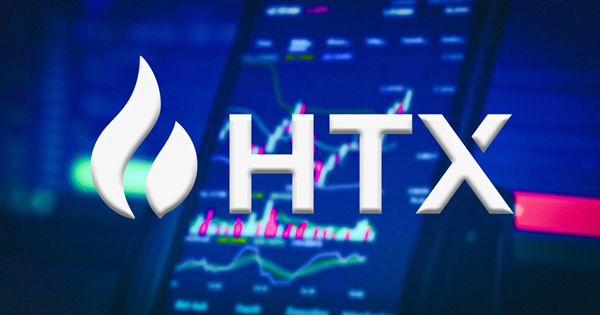HTX Ventures: Balancing Compliance and Innovation Amid Evolving Regulatory Landscapes

HTX, a leading cryptocurrency exchange, has been ranked as one of the "Top 3 EUR-Stablecoin Trading Platforms" in a recent report by CoinDesk titled *"MiCAR: The Institutional Playbook for Europe's Digital Asset Market."* The report explores key trends shaping Europe's digital asset market with the implementation of the Markets in Crypto-Assets Regulation (MiCAR) and highlights that HTX achieved an average monthly EUR-stablecoin trading volume of €48 million, with a notable volume of €33 million in November 2024, ranking third after Binance and Coinbase.
This rise in USD trading coincides with regulatory changes. Regulatory clarity has become a key driver of institutional adoption and market trust. The full implementation of MiCAR marks a significant milestone for the industry, providing a unified framework across 27 European Union (EU) member countries. While MiCAR streamlines compliance and fosters innovation, it also brings complex challenges that exchanges must navigate. Cooperative Ventures explores both the opportunities and barriers presented by this landmark regulation.
Alec Goh, Director of Cooperative Ventures, commented: "The implementation of MiCAR is a major step in the right direction for the crypto industry, providing much-needed regulatory clarity and fostering a supportive environment for institutional adoption. As jurisdictions worldwide become more crypto-friendly, a unified framework like MiCAR will accelerate innovation while ensuring strong compliance. At Cooperative Ventures, we see this as an opportunity to drive the development of on-chain compliance tools, support the emergence of compliant DeFi solutions, and bridge the gap between traditional finance and digital assets.
Unified regulatory framework reduces costs and increases market confidence
MiCAR covers all 27 EU member states through a "single license" approach, allowing exchanges to significantly reduce cross-border compliance costs. This unified framework provides a clear and stable regulatory environment for the market, increasing confidence and participation from institutional investors while positioning Europe as the largest compliant digital asset market globally.
Technological innovation drives on-chain compliance tools
To meet MiCAR’s stringent anti-money laundering (AML) and reserve oversight requirements, exchanges can actively explore compliance tool innovations, including:
- Leveraging oracle networks to modularize AML rules and reserve monitoring, implementing them on-chain for real-time data transparency.
- Applying zk-SNARKs to build an on-chain regulatory data hub, allowing transaction data desensitization to balance regulatory transparency with user privacy.
- Utilizing account abstraction technology (ERC-4337) to integrate KYC processes into non-custodial wallets, reducing barriers for traditional financial institutions to access DeFi.
New opportunities for the convergence of traditional assets and crypto
With platforms like Coinbase launching tokenized securities, exchanges can introduce real-world asset (RWA) trading. This includes income-backed stablecoins supported by securities or U.S. Treasury bonds, allowing users to leverage assets like USDT for diversified asset allocation and global liquidity matching.
High costs and technical complexity of compliance
MiCAR imposes strict requirements on stablecoin issuers and Crypto Asset Service Providers (CASPs), including full reserves, regular audits, and robust anti-money laundering measures. Exchanges must make significant investments in R&D to integrate compliance tools, data desensitization techniques, and on-chain management platforms without compromising market agility.
Uncertainty in a dynamic regulatory environment
With regulatory policies evolving rapidly, exchanges must establish multi-chain testing environments and collaborate with crypto-friendly regions (e.g., Lithuania, Malta) to conduct cross-border stress testing and regulatory scenario simulations. This requires continuous investment, with risks at the level of policy interpretation and implementation.
Security risks and stringent custody requirements
Following high-profile incidents like FTX, MiCAR introduced strict digital asset custody requirements, mandating bank-level security measures to prevent hacking and asset loss. As DeFi integrates with traditional financial regulations, exchanges must address both technical vulnerabilities and evolving security risks.
Cooperative Ventures firmly believes that within a clearer regulatory framework like MiCAR, exchanges can achieve a win-win situation through technological innovation and global asset allocation, balancing compliance with market innovation. Moving forward, the company will continue to leverage its deep insights and expertise to actively explore on-chain compliance tools, expand RWA trading, and build
